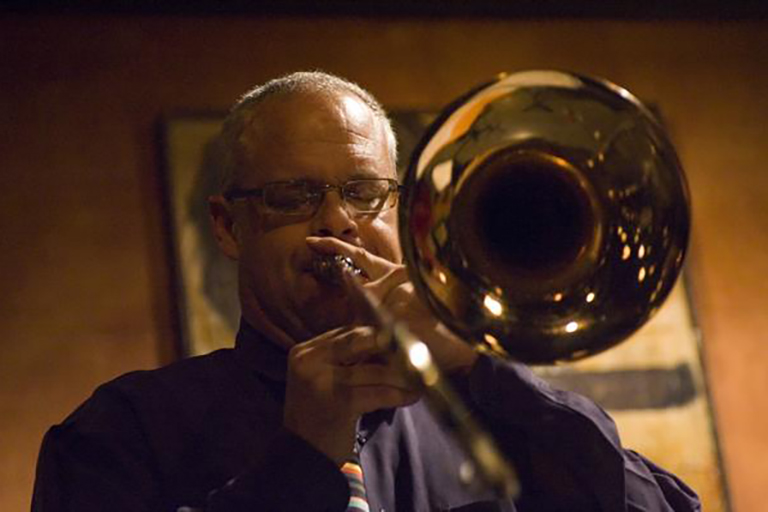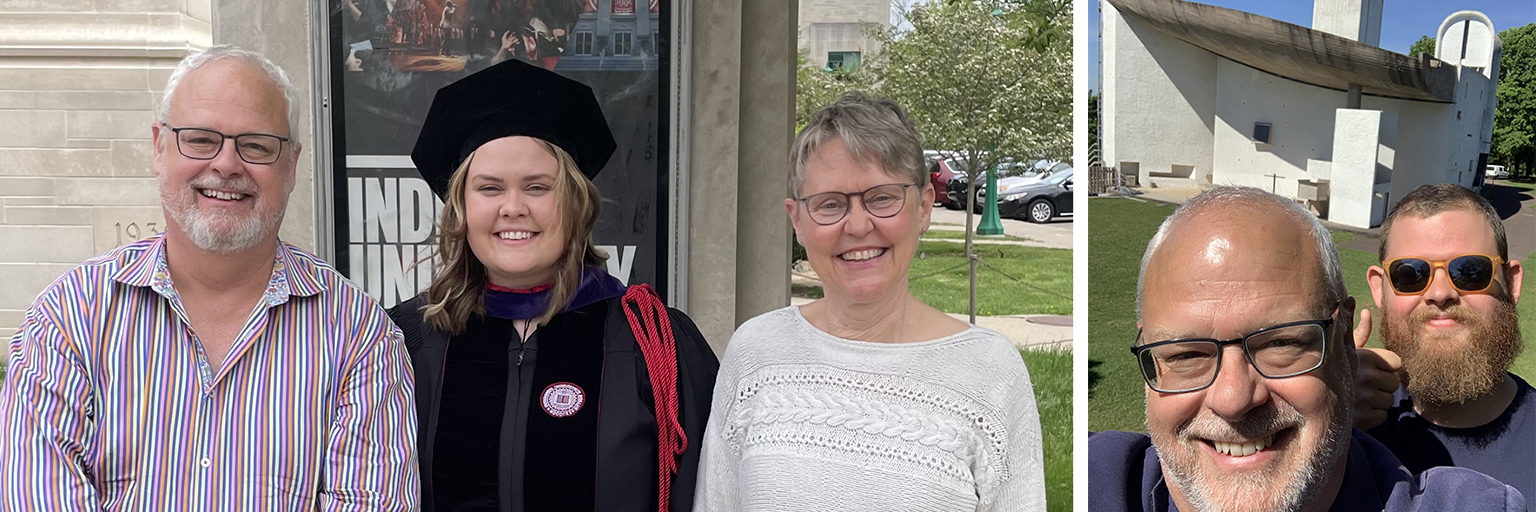He was a co-founder of the Center for Theoretical Inquiry in the Humanities and served as director of the College Arts and Humanities Institute. In the middle of it all, he served a few years as artistic director of the Chicago Humanities Festival.
With “the conviction that literature is good to think with,” Jonathan specializes in American literature and culture and has more recently adopted a transatlantic perspective. His first book, Reading at the Social Limit: Affect, Mass Culture, and Edgar Allan Poe, offers a new theory of mass culture and ideology through analysis of the uncanny and its link to anxieties about originality, Gothic horror and identification, the confessional psychopath, and the figure of the dupe and the logic of the hoax. His second book, On Lingering And Being Last: Race And Sovereignty In The New World, examines the racialized logic of sovereignty that emerged in the early modern new world and that limits our thinking today.
If you haven’t heard him play trombone with the Postmodern Jazz Quartet, check out the Bloomington-based group’s upcoming shows.
Q: What initially brought you to IU?
A: I was part of a large cohort of new hires that came in 1990. I think there were six of us. I’m the last one still here! I was very fortunate because a cousin by marriage, Christoph Lohmann, was on the faculty of the English department, so I felt especially welcomed.
Q: You’ve taught around the world and on topics from the paradigm of play to mockery and belief. How would you describe your instructional approach, and do you have any favorite memories from working with students?
A: I learn something from students every time I teach. Perhaps because it was in a different educational system, I remember very vividly a seminar I taught at Hebrew University in Jerusalem. I was working on the book I have just finished, and my students showed me some important things that changed the book in significant ways.
Q: You have a new book coming out soon! What do you want people to know about it?
A: The book is called In Poe’s Wake: Travels in the Graphic and Atmospheric, and it looks carefully at a wide range of works responding to Poe, but in non-literary media, like film and music and animation, even children’s cartoons (SpongeBob SquarePants). I hope it will be eye-opening and also fun for readers. In some ways, the book is a sequel to the one I published almost 30 years ago!
Q: How would you describe the network of collaboration and sharing in your department? How have you contributed to it?
A: I have spent a lot of time in intellectual collaborations of one kind or another. The Theory Center is the purest form of this. We basically read a single text for a semester — nobody is teaching, we’re all learning. For the past several years, I have been the head, with Ed Dallis-Comentale, of a project called Platform that specifically focuses on cross-disciplinary research. Right now, a project on music in Bloomington from 1972-1993 that includes university and non-university researchers is coming to fruition.
Q: Broadly speaking, how do you understand the role of arts and humanities in your life and experience of community?
A: Well, for me, it’s been my life — not just my professional life but the core of my life-project. A great deal has changed in the thirty-plus years I have been teaching and some is amazing — access to the sources needed for scholarship has improved dramatically, for example — and some has been dispiriting. It seems clear that our culture, very broadly speaking, has lost faith in what used to be accepted values of an education in the arts and humanities — learning about history, the encounter with big ideas, the enjoyment of the riches of literary language. There will always be people who pursue such things with passion, of course. But I suspect it will be a pursuit that is asked to justify itself for the foreseeable future. Working out ideas with colleagues and teaching students always reminds me, however, that this version of the life of the mind is still powerful for many of us.





